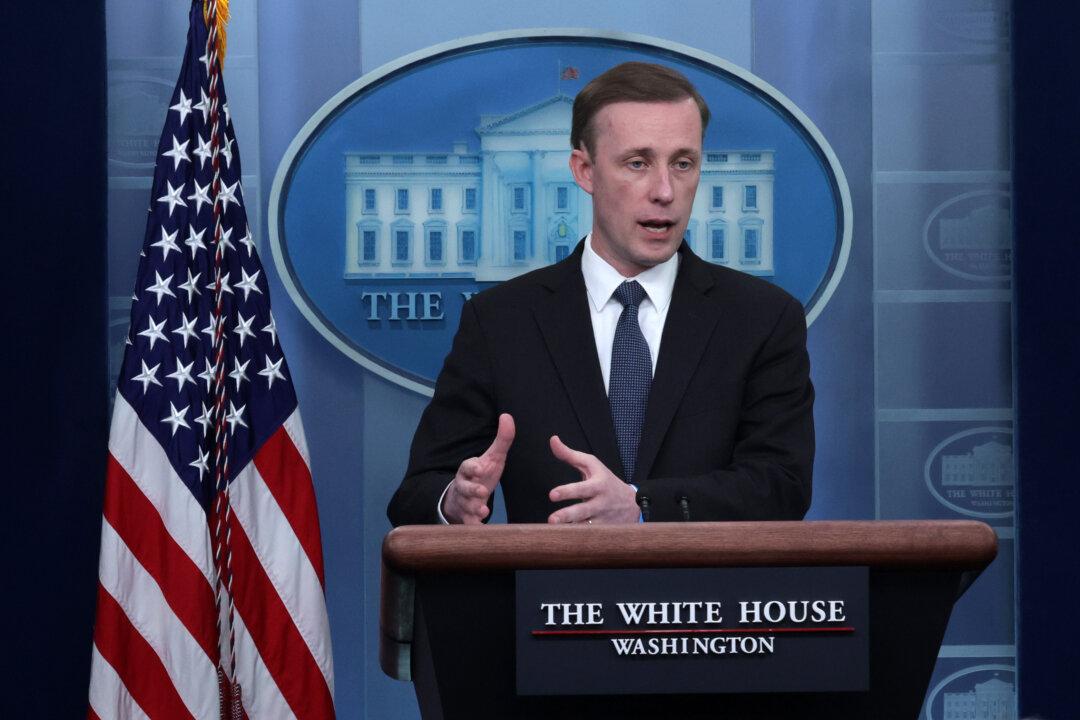The White House said Monday that the next phase of the war in Ukraine could last several months—or ever longer—as Russian forces regroup for a renewed offensive in eastern Ukraine that will focus on fewer lines of attack.
White House national security adviser Jake Sullivan told reporters at a briefing that Russia’s military has been surprised by the staunch resistance of Ukrainian forces and support to Kyiv from a unified Western alliance.





